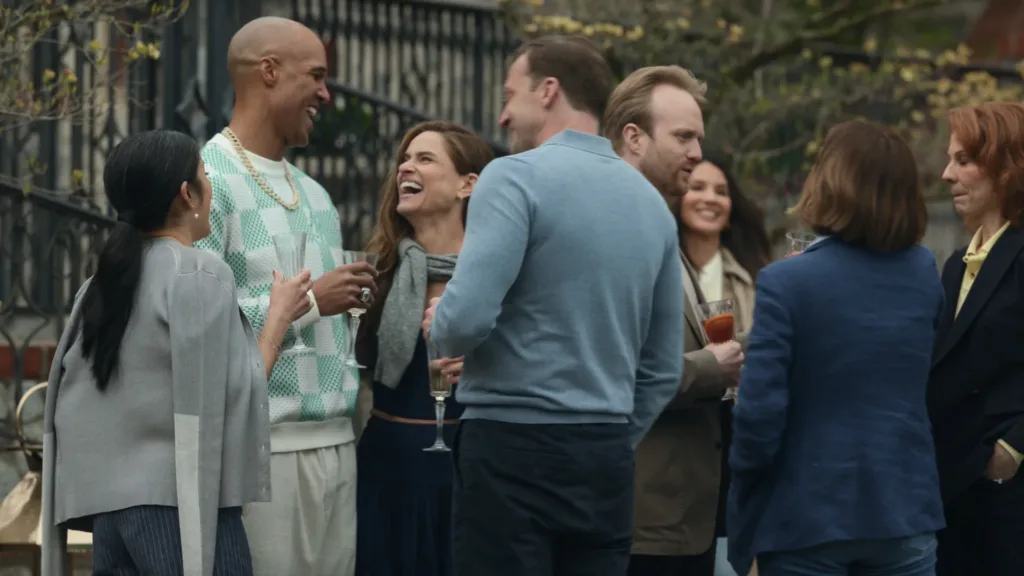Apple TV+ confirmed renewal for a second season of Your Friends and Neighbors before its April 2025 debut, a rare vote of confidence that reflects strong faith in the series’ blend of dark humor and suspense. Production on season 2 is underway across New York City and the Hudson Valley, with filming slated to conclude in late summer 2025. Although Apple has not set an exact release date, insiders anticipate new episodes will arrive in early spring 2026.
Jon Hamm returns as Andrew “Coop” Cooper, the disgraced hedge-fund manager turned burglar whose exploits in Westmont Village exposed hidden rivalries and personal betrayals. Amanda Peet reprises her role as Mel Cooper, whose complicated ties to Coop deepen in season 2 as she navigates the fallout from her own deceptions. Olivia Munn, Hoon Lee, Mark Tallman, Lena Hall, Aimee Carrero, Eunice Bae, Isabel Gravitt and Donovan Colan also return, ensuring that the ensemble dynamic at the series’ core remains intact.
Season 2 will expand its roster with James Marsden joining in a key recurring role, alongside Arienne Mandi, Erin Robinson and Bre Blair. Show creator and executive producer Jonathan Tropper has pledged to explore the Cooper family’s emotional fractures more deeply, teasing a darker tone and higher stakes after the dramatic finale of season 1.
Viewership metrics reveal that Your Friends and Neighbors set new records for an Apple TV+ premiere, prompting Tropper to negotiate an extended overall deal with Apple that secures his future contributions to the network’s slate. Critics have hailed the series for its sharp writing and Hamm’s nuanced performance, while audiences have praised its unpredictable plot twists and moral ambiguity.
With production already in motion and a cast bolstered by fresh talent, the second season aims to build on its predecessor’s momentum and further unveil the hidden cost of privilege in suburban America.
